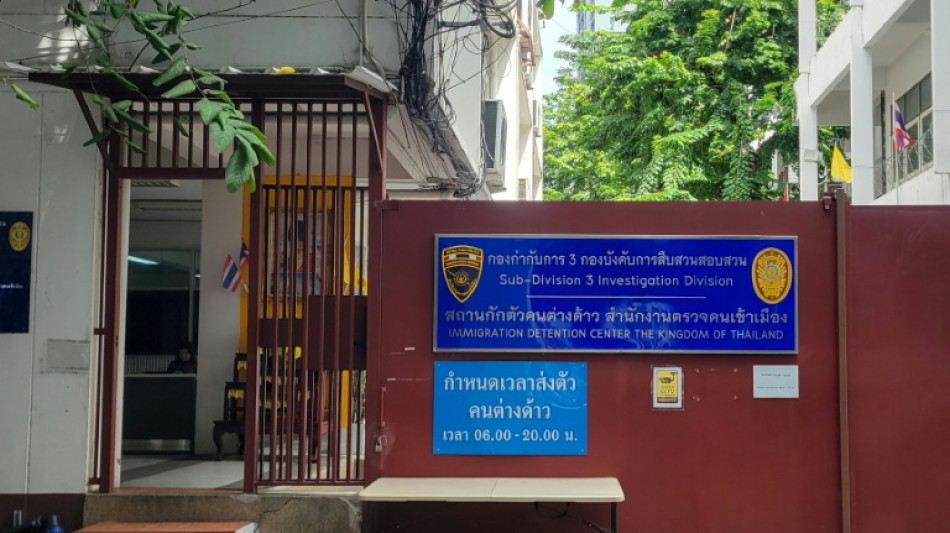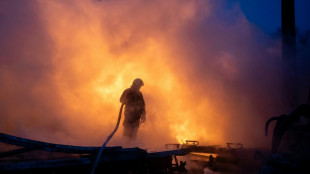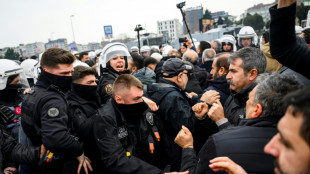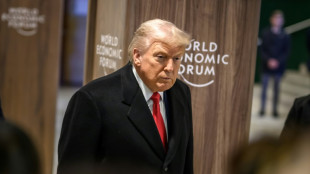

China exiles in Thailand lose hope, fearing Beijing's long reach
With tears rolling down his cheeks, detained Chinese political exile Zhou Junyi struggles to make his voice heard over dozens of families visiting Bangkok's main immigration detention centre.
Zhou's China Democracy Party, an exile group, organised a commemoration on June 4 in Kanchanaburi, west of Bangkok, for the victims of the 1989 Tiananmen Square crackdown in Beijing.
"Chinese people still feel in their hearts the need for democracy," said Zhou. "Even if they cannot express it or say it openly, it is there."
Thai police arrested the 53-year-old at his home in the capital eight days after the ceremony, ostensibly for visa offences.
He now faces deportation -- for which he blames Beijing.
"I'm anxious, I've lost hope," he told AFP.
Zhou fears immediate arrest, torture and a long prison sentence if he is sent back to China, which he fled 10 years ago after attending a pro-democracy conference in the United States.
UN figures show that around 200 Chinese exiles have sought refuge in Thailand in recent years, but activists say pressure from Beijing is raising the risk of forced deportation.
Alongside Zhou at the detention centre, Tan Yixiang shouted across a metre-wide space between two wire mesh fences.
A vocal advocate for Tibetan and Uyghur rights, Tan is a UN-recognised refugee but has been held by Thai immigration for more than a year.
"I will never sing the praises of dictatorship, I speak up for human rights," the 48-year-old said.
Both men are seeking asylum from third countries.
Thailand has a complex and ambivalent attitude. Porous borders and a reputation for religious and cultural tolerance have long drawn those seeking sanctuary, but Bangkok does not legally recognise refugees or offer asylum.
It holds more than 80,000 people who have fled Myanmar in camps at its western border, according to UN figures, and there are millions more migrants from its western neighbour in the country.
Ad hoc law enforcement has long allowed arrivals from China to settle into the shadows. Zhou arrived illegally overland through Laos, without a passport.
The Chinese political activists are concentrated in Chiang Mai in Thailand's north, where they hold lectures and publish pamphlets, but they now fear for their oasis.
- 'Quite afraid' -
Zhou's arrest is consistent with what analysts describe as an increasingly stark pattern of Chinese transnational repression, with NGO Freedom House in February calling its government the world's "most prolific perpetrator".
Thailand's ties with China have strengthened in recent years, with then-premier Paetongtarn Shinawatra pledging to deepen economic cooperation on a trip to Beijing in February.
The same month, Beijing's public security apparatus collected and repatriated via Thailand hundreds of suspected Chinese criminals ina crackdown on Chinese-run scam compounds on the Thai-Myanmar border.
Thailand also forcibly deported some 40 Uyghurs -- a Muslim minority that rights groups say faces persecution in western China -- who had been held for more than a decade.
Western governments condemned the move, which human rights groups deemed "completely outrageous". The Uyghur group's whereabouts remain unknown.
Beijing's foreign ministry insisted that the repatriation was done according to international law and said it opposed "attempts to use human rights as a pretext to interfere with China's internal affairs".
In 2015, Chinese-born political publisher and naturalised Swedish citizen Gui Minhai was abducted while on vacation in Thailand and was later convicted in China of espionage.
Thailand and China are marking half a century of diplomatic relations this year. Another Chinese activist, who gave his name only as Alvin, expects Beijing to use the anniversary to put pressure on Bangkok over repatriations.
Many Chinese exiles are now leaving Thailand to seek new sanctuaries elsewhere, often Canada or Europe, Alvin said.
"Political refugees who are free in Thailand now are quite afraid," he said. "They're very worried."
Thailand is not a signatory to the UN Refugee Convention, so does not distinguish between refugees and other migrants.
Statistics from the UN High Commissioner for Refugees show the number of Chinese asylum seekers in Thailand rose more than fivefold between 2019 and 2023, but its Thailand office said it could not comment on individual cases.
- Chinese democracy -
The China Democracy Party emerged out of calls for political reform in the late 1990s. Its website notes there are "dangers" to joining but it says it has thousands of members, who largely engage in activism abroad.
Party members held a small protest in Los Angeles days after Zhou's arrest, calling on the Thai government not to deport him.
Zhou claims Chinese authorities have harassed his parents, who live in the eastern province of Zhejiang, to get him to return.
He said he even divorced his wife, who remains in the United States, to protect her from persecution.
Chinese embassy staff have visited him several times to try to make him sign a voluntary return form, he said. "But every time I refuse."
The Chinese embassy in Bangkok did not respond to AFP's request for comment on specific cases, saying "the individuals in question should contact the embassy themselves."
The foreign ministry in Beijing did not respond to requests for comment.
Khathathorn Kamtieng, a spokesman for the Thai immigration police, said Zhou was waiting for a new passport.
"Once the new passport has been obtained, he will be deported to his home country."
L.Dubey--MT




